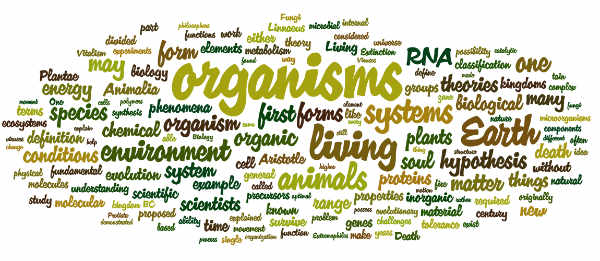Biology

Biology is the science of life. Its name is derived from the Greek words "bios" (life) and "logos" (study). Biologists study the structure, function, growth, origin, evolution and distribution of living organisms. There are generally considered to be at least nine "umbrella" fields of biology, each of which consists of multiple subfields.
All the branches of biology can be unified within a framework of five basic understandings about living things:
• Cell Theory - There are three parts to cell theory — the cell is the basic unit of life, all living things are composed of cells, and all cells arise from pre-existing cells.
• Energy - All living things require energy, and energy flows between organisms and between organisms and the environment.
• Heredity - All living things have DNA and genetic information codes the structure and function of all cells.
• Equilibrium - All living things must maintain homeostasis, a state of balanced equilibrium between the organism and its environment.
• Evolution - This is the overall unifying concept of biology. Evolution is the change over time that is the engine of biological diversity.

Although modern biology is a relatively recent development, sciences related to and included within it have been studied since ancient times. Natural philosophy was studied as early as the ancient civilizations of Mesopotamia, Egypt, the Indian subcontinent, and China. However, the origins of modern biology and its approach to the study of nature are most often traced back to ancient Greece. While the formal study of medicine dates back to Hippocrates (ca. 460–370 BC), it was Aristotle (384–322 BC) who contributed most extensively to the development of biology. Biology began to quickly develop and grow with Anton van Leeuwenhoek's dramatic improvement of the microscope.